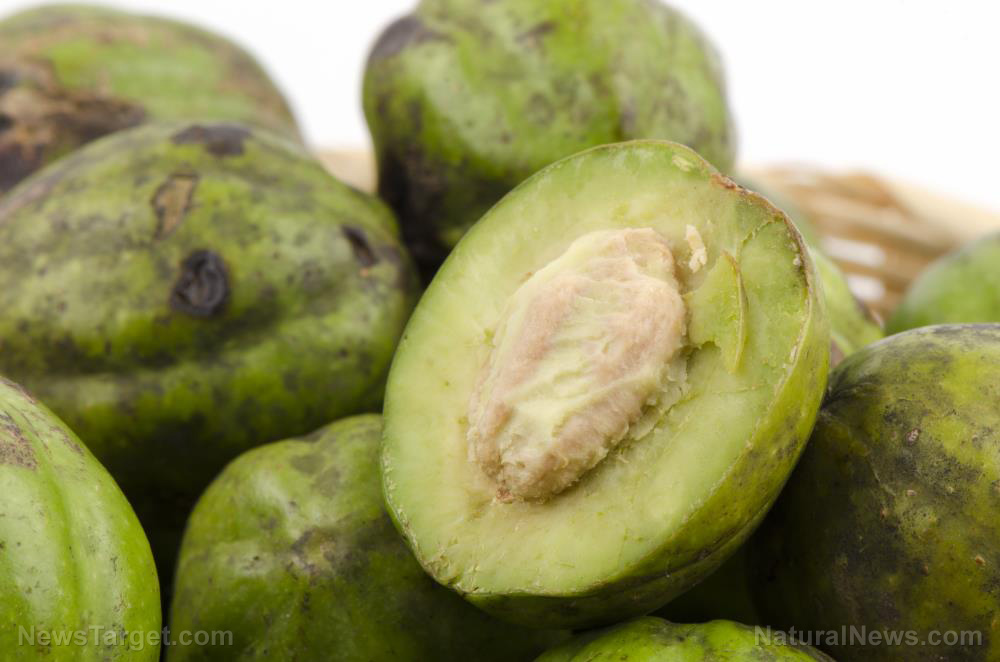Sushi lovers, rejoice: Wasabi can help prevent cancer
01/12/2019 / By Zoey Sky

If you’ve eaten sushi, you might have noticed that your meal usually comes with a green paste called wasabi (Japanese horseradish). Not everyone likes this pungent Japanese condiment, but according to a study, it could be the key to curing cancer.
The study was published in the Oxford Journal.
What are isothiocyanates?
Data from the study showed that wasabi may prevent and inhibit cancer cell growth. In the study, researchers assessed the effectiveness of isothiocyanates (ITCs) in wasabi when used to treat bladder cancer.
Wasabi is full of isothiocyanates, and the study suggests that the organic compounds can be used to develop a natural cure for cancer. Studies have shown that ITCs can “strongly inhibit” the development and progression of cancer.
Once ITCs are inside cancer cells, the compounds can bind to proteins and induce apoptosis (programmed cell death). This means that once cancer cells are exposed to isothiocyanates, they commit suicide.
Isothiocyanates can also be found in cruciferous vegetables like broccoli, Brussels sprouts, and cauliflower.
Other vegetables that contain isothiocyanates include:
- Bok choy
- Cabbage
- Cauliflower
- Horseradish
- Kale
- Kohlrabi
- Mustard
- Radish
- Spring greens
- Swede/rutabaga
- Turnip
- Watercress
The study originally set out to test the compound more generally to verify its efficacy. The researchers also wanted to determine if cruciferous vegetables can inhibit the development of bladder cancer cells. (Related: Natural matcha green tea extract found to effectively kill breast cancer cells.)
When the study began, the researchers initially tested an ITC-rich form of mustard seed powder.
The results of the study have gone beyond the initial goals of the researchers involved in the project. Additionally, the study findings confirmed a known fact: that cruciferous vegetables are very effective when it comes to inhibiting cancer growth.
When an individual has untreated bladder cancer, tumors can invade surrounding muscle tissue. This occurs in more than 70 percent of cases.
During the course of the study, participants who received ITC lowered the spread of the tumor down to almost 35 percent. The researchers added that the spread of cancer to nearby muscles went down by an incredible 100 percent.
This isn’t the first study of its kind to confirm the cancer-fighting properties of ITCs. A separate study on isothiocyanates, which involved a collaboration between Dr. Fung-Lung Chung of Georgetown University and Dr. Anthony Di Pasqua, a bioinorganic chemist from the University of North Carolina, had similar findings.
How can ITCs be used to cure bladder cancer?
Unless they’re treated immediately, bladder tumors can grow and spread rapidly. In most cases, bladder tumors are treated aggressively with chemotherapy, radiation, and surgical interventions. However, these forms of treatment are associated with major risks and negative side effects. There are even cases where the entire bladder of a patient must be removed.
If you want to boost your bladder health and lower your risk of this type of cancer, consume more foods with ITC. Consuming ITC-rich foods allows the beneficial compounds to enter the urine. If the urine is still in the bladder, any cancer cells that are also present are exposed to ITCs and the cancer cells will then destroy themselves.
Natural health communities, and even people who simply enjoy eating sushi, are happy to learn about the findings of this study on wasabi and ITCs, which revealed that wasabi has at least 40 times the ITC of broccoli.
In Japanese cuisine, the root vegetable wasabi is grated into a paste or sauce and used as a condiment. Japanese culture prizes wasabi since it can help prevent various illnesses and improve a person’s overall well-being.
Visit Cancer.news to learn more about wasabi and other natural cures.
Sources include:
Tagged Under: Bladder cancer, botanicals, cancer, cancer risk reduction, food cures, herbal medicine, herbal remedies, ingredients, men's health, natural cures, natural healing, natural medicine, natural remedies, nutrition, prevention, remedies, Sushi, wasabi, wellness, women's health



















